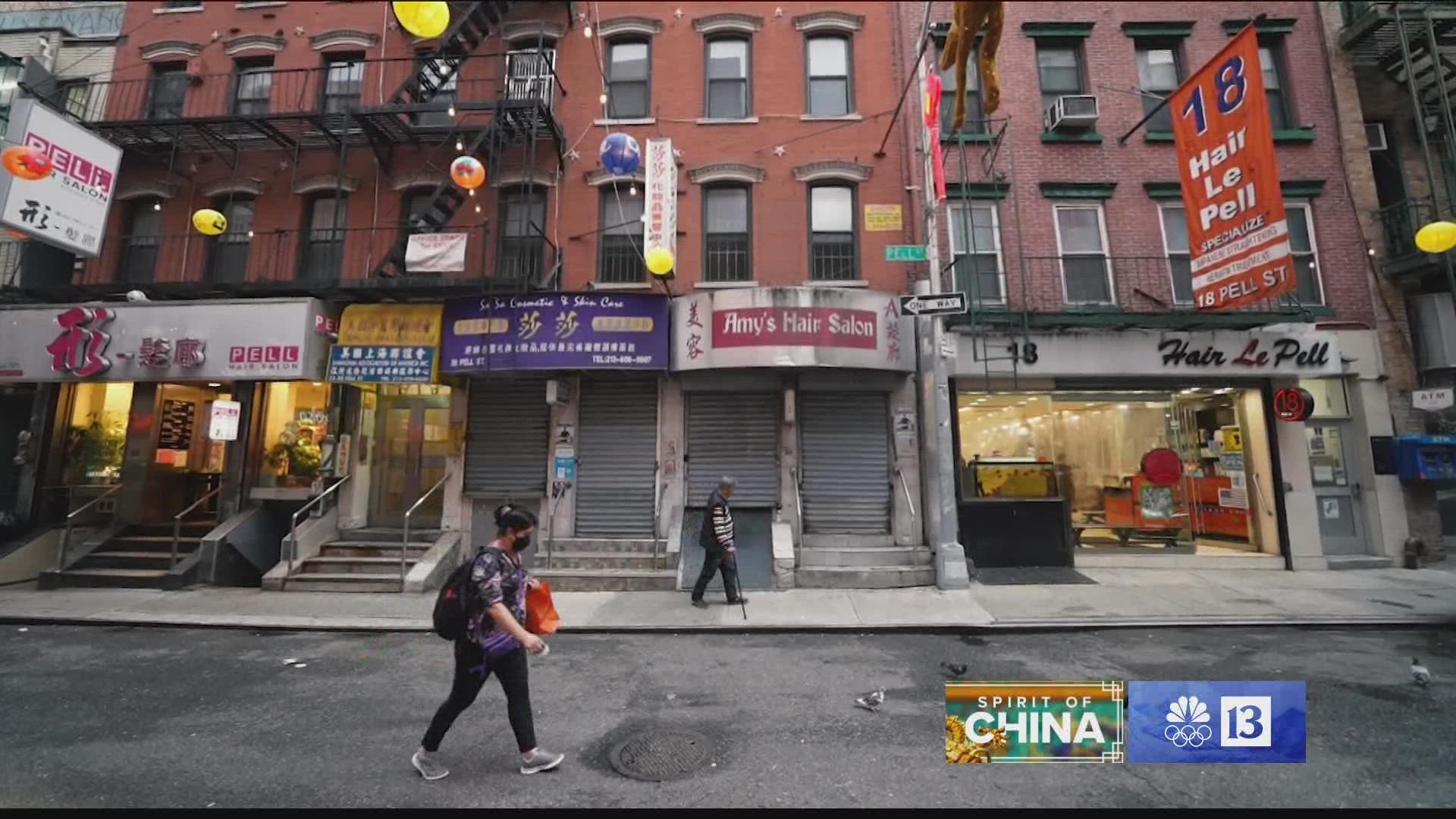NEW YORK — America has always been a land of immigrants. New York City includes people from all over the world. Just three miles from the energetic pace of Times Square is a neighborhood with a rich history: Chinatown.
"Where else can you go in America that you can go to see an historic neighborhood that dates over 100 years," said author Grace Young.
Chinatown is trying to recover after two brutal years. A New York City resident, Young remembers the fear that gripped this neighborhood early in the pandemic.
"People were afraid to go to restaurants and stores and shops for fear of catching Covid," said Young.
The Buddhist temple in Chinatown helped a community during the crisis.
"More people passed away, unfortunately. We helped families pay proper respects to their past family members. We did a lot of deliverance and memorial services," said Venerable Kuo Ming at Mahayana Temple.
Some people blamed Asian Americans for Covid-19 and violence surged. Chinatown residents and workers feared they would become a victim. Millions of tourists and hundreds of thousands of office workers disappeared.
"I glanced into restaurants and they're empty," said Young.
Young became an accidental advocate for Chinatown. She posted interviews on Instagram of shop and restaurant owners struggling to keep their businesses afloat.
"I was trying to rally support of New Yorkers to come down and support those restaurants, markets, stores, they need your business," said Young.
Some businesses survived. Many did not.
"We've had to close stores. We've had to furlough workers," said Pearl River Mart owner Joanne Kwong.
"Last summer and fall we lost legacy businesses. And by legacy, I mean restaurants and stores that had been in Chinatown for 40 years, 50 years," said Young.
But other issues are contributing to the Chinatown challenge. This neighborhood has a rich history. But many of the buildings are old. Some leaders fear Chinatown lacks jobs for the next generation.
"You better have very good living conditions, a roof over your shoulder, we have a homeless issue. You want to create job opportunities here that people cannot wait to get out of bed to work," said Executive Director of the Chinatown Partnership Wellington Chen.
Livia Kao is among that next generation.
"I came to America 13 years ago for college and ever since I stayed here. It's my second home now," said Kao.
She is 32 but does not live in Chinatown.
"To me it's just very old town to me," said Kao. "I live in Brooklyn. But I would still come here for the food and for grocery shopping and for the ingredients that I can only get from Chinatown."
There are other challenges. Chinatown's population is declining. The next generation and businesses are moving to nearby Flushing, New York.
"You have a choice. Here, you know you have 20,000 Asian Americans. There (Flushing) you have 400,000. What would you choose?", said Chen.
With a huge exodus of kids leaving Chinatown with their parents some schools are abandoned.
"No village can have a future without children," said Chen.
It's leaving many people wondering about the future of Chinatown.
"It's so heartbreaking to think we could lose Chinatown," said Young.
"I feel like this Chinatown will just become a landmark or become a tourist spot," said Kao.
"The one difference about this Chinatown is I am very optimistic it'll be here 100 years from now," said Chen.
The "Spirit of China" series highlights the culture of Chinese-Americans across the United States. Learn about the people, the history and the challenges of Chinatowns in Chicago, New York and San Francisco while the world focuses on the Winter Olympics in Beijing.

